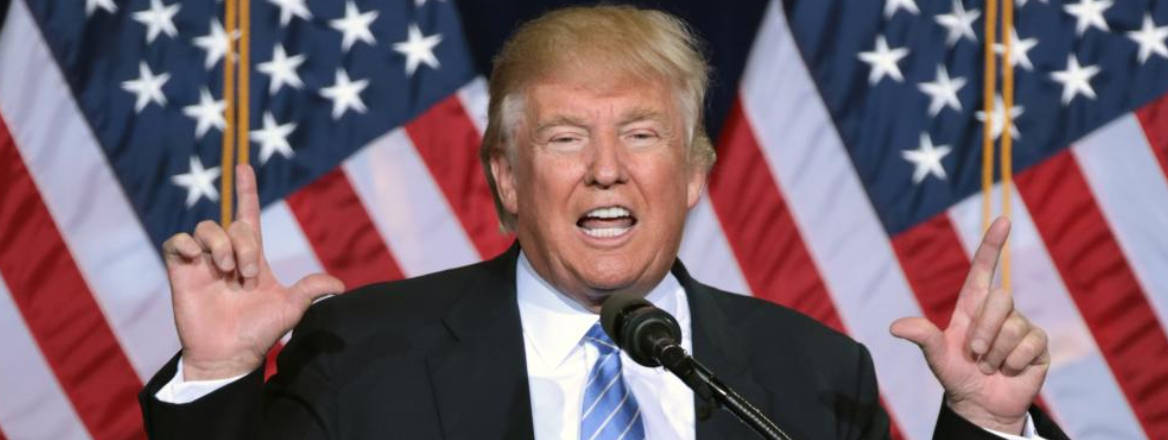Mind the Gap Between Authoritarian Politics and Democratic Populism
Overstating authoritarian populism in the West could be a self-fulfilling prophecy for the feared retreat of Liberalism.
In his outgoing speech to the Organization for Security and Cooperation in Europe, then US Secretary of State John Kerry warned about the ‘danger of authoritarian populism’ in developed economies, marked by an increasing tendency to subvert democracy, consolidate power and distort the news environment.
As with all slogan theories, caution is advised on exaggerating uniformity. In this case, it seems, there is also a risk of blurring lines between political trend and public opinion.
No doubt the danger is real, with backsliding on liberal norms by several NATO member governments and a growing prevalence of extremist political parties throughout the West.
However, authoritarian populism (AP) may be easier to recognise as a style of politics than it is to categorise as a voting mind-set.
As explored at the latest YouGov-Cambridge Forum, an academic version of this so-called ‘AP theory’ suggests that large portions of Western voters now hold a coherent set of beliefs, which can reasonably be described as an ‘authoritarian populist mind-set’.
This includes being anti-supranational (for example, against Brussels), hostile or negative to immigration, critical of human rights activists and concerns and favouring a strong and tough foreign policy.
New voter groups are certainly reshaping Western politics, cleaving traditional Left–Right divides and coalescing around alternative narratives on identity, security and trade. A range of demographic and other factors also help to make certain voters more susceptible to the far Left or Right
On several counts, however, applying the analytical moniker of a democratic decline is a problematic framing device for such developments.
First, to say that a certain mix of conservative attitudes equals an authoritarian populist mind-set is to suggest they amount to a preference for strong-arm rule as an alternative to liberty and political pluralism.
However, surely much of recent populism reflects the opposite, namely a desire for more pluralism and accountability, rather than less, and the promise to shake up politics rather than to undermine it.
That is why there is such mass appeal in the Brexit and Trump narratives on challenging established order, clobbering self-serving elites and rebalancing policy towards public concerns on mass migration.
Conflating these trends with pro-authoritarian sentiment is in danger of missing the point. For many on the new ‘alt-right’, it is exactly about challenging power-hungry dogma in the form of arch-centrist liberal fundamentalism, which has seemingly brooked little debate for years.
A second liability with this kind of schema is painting a lot of moderate public opinion as unduly reactionary. ‘Anti-immigration’ has become a common shorthand that often fails to distinguish the major portion of voters who are varyingly pro-immigration reform or concerned in the abstract, rather than simply hostile or negative to immigration.
The same voting types are labelled as taking a critical view on human rights and civil liberties per se, when much of the mainstream conflict in this area relates to perceptions of left-wing activism and legal chicanery to protect offenders, the erosion of sovereign judicial authority and concerns about multiculturalism.
Likewise on defence policy, if voters want a toughened military posture towards the non-liberal world, how is this implicitly authoritarian? Perhaps this is the case if it implies a deeper desire for a more martial society, which is quite a different thing.
Or, from the opposite angle, how does a peacenik preference to look away from foreign authoritarian abuses reflect a more inherently liberal outlook? This kind of metric also bunches a neo-conservative hawkishness for liberal international activism together with a more paleo-conservative preference for maintaining a powerful military precisely ‘so we don’t have to use it’.
Clearly, umpteen structural motivations lie behind such altered Western voting patterns: hard times have boosted the appeal of radical change while the centre left has yet to recover intellectually from the global financial crisis; and third-Way alignment on economic policy has enhanced the political importance of cultural identity at the same time as growth in higher education has produced new cultural divides within traditional political tribes. And so on.
But a lot of Western populism also reflects a simpler blending of two developments. One is a surge of largely moderate scepticism towards globalisation, most notably on mass migration and uneven domestic economic growth.
The other, maybe less immediately apparent, is the modern civic revolution and the expanded power of the individual into nearly all areas of life. While supercharging democratic engagement, this process has also led to a form of omnipresent modern counterculture, readily aimed at anything that smacks of a put-down.
Success at the ballot box is still driven above all by the magnetism of personalities who embody a timely sense of political vogue. Beyond myriad other factors, then, a key aspect in the current winning streak of conservative populism has been the basic pull-factor of next-generation leaders who are simply good at tapping into the new empowerment verve while appealing to a sense of grievance, real or otherwise.
This is not to deny that figures such as US President Donald Trump have gained from a certain amount of ‘reactionaryism��’. But we overburden this explanation at our geopolitical peril.
International relations are de-converging from the post-Soviet liberal consensus towards a more familiar balance-of-powers system, bringing new levels of instability among rival models of domestic and international society.
Western political fragmentation is a key aim for the cheerleaders of this emerging system, who are getting increasingly adept at pinpointing our weaknesses.
Principal among these weaknesses, ironically, is the institutional strength of pluralism and public opinion in the West. Actors such as Russia have learned to use it against us through a modern suite of political influence operations, well designed to promote the anti-establishment and undermine unity within the NATO bloc.
Such propaganda shares a core proposition with the populism it supports, namely that Western elites cannot be trusted and traditional forms of democracy aren’t working.
Framing populism through the archetype of anti-pluralism helps only to reinforce this proposition, while feeding a liberal bunker mentality against cognisant, rational shifts in public opinion.
Transatlantic establishments must distinguish the measured concerns and aspirations of democratic populism beyond the caricature of authoritarians on the march. Otherwise, support will continue flowing to the fringe, with long-term consequences for the international system. The authors of dezinformatsiya couldn’t script it better.
Dr Joel Faulkner Rogers is the Academic Director of YouGov, the international internet-based market research firm.
WRITTEN BY
Joel Rogers de Waal
RUSI Associate Fellow, RUSI International


